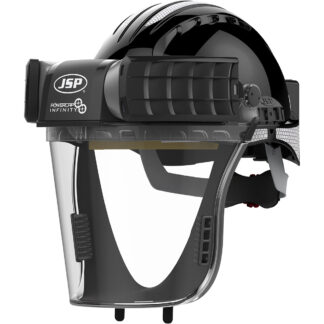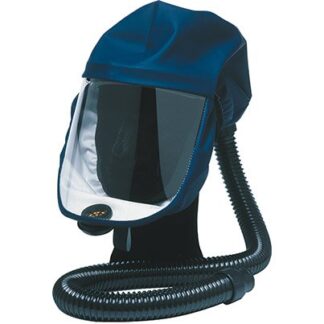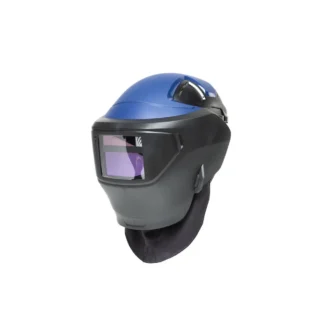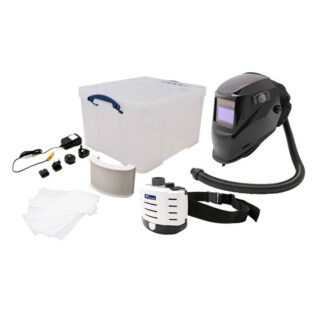When working with asbestos, understanding the associated risks and adhering to best practices for handling is crucial to prevent severe health consequences. Proper protective measures are essential to safeguard against exposure to this hazardous material. In this blog, we have outlined some things to consider to keep safe when working with asbestos.
What is asbestos?
Asbestos is composed of naturally occurring fibrous minerals that have crystallised over time. Although all types were made illegal to use in the UK in 1999, it was extensively used in the construction industry due to its durability. Common applications included building insulation, cement for roofing, and even car brake linings.
Due to its hardiness, it is resistant to heat and fire, which makes it the perfect fit to protect vessels against fires. However, despite its useful properties, asbestos poses significant health risks when its fibres are released into the air and inhaled.
These fibres are microscopic and invisible to the naked eye, making them particularly dangerous. Prolonged exposure to asbestos can lead to severe health conditions, including lung cancer and asbestosis, which is a chronic lung disease that impairs breathing and can lead to heart complications. When inhaled or digested the fibres can become trapped in the lungs and other parts of the body, causing damage over time.
Why is asbestos protection different from regular PPE?
Due to the hazardous nature of asbestos particles, the industry is governed by specific legislation that requires a higher level of protection than standard personal protective equipment (PPE). The microscopic size of asbestos fibres means they can easily contaminate clothing and spread without detection. Therefore, anyone working with or near asbestos must wear appropriate protective gear to minimise the risk of exposure.
Face masks for asbestos protection
Ordinary dust masks do not provide adequate protection against asbestos. By law, anyone working with or around asbestos must undergo face-fit testing for a P3 full-face mask. A good example is the Moldex 9000 series with 9030 P3 filters, which offers the necessary tight seal to the user’s face.
P3 masks provide the highest level of filtration, making them ideal for asbestos work. Any filters used with these masks must meet the FFP3 standard. The Health and Safety Executive (HSE) recommends a protection factor of at least 20 when handling asbestos, which aligns with the level provided by P3 masks.
Wearers of these masks must be clean-shaven to ensure a proper seal against the face. Those with facial hair can use powered respirator units, which accommodate a less precise seal. However, those who require a powered unit must first assess their environment. If asbestos is found they must leave the environment immediately and never work with asbestos.
To protect against these fine fibres a mask must be tested to confirm it has a proper seal against the face. To make sure the fit of a mask is correct, face-fit tests must be conducted by qualified professionals to ensure that the respirator seals correctly, and a certification is issued upon successful completion to prove that the respirator fits the individual.
For onsite assessment, clean-shaven people who have been fully face-fit tested can use a half-mask or full-face mask. These currently have around 95% of the available market due to their optimum face-fit capabilities.
Disposable clothing
Disposable coveralls are essential to prevent contamination of regular clothing. These coveralls should cover your entire body, including footwear, hands, and head. Once used, they should be carefully removed without shaking to avoid dislodging any asbestos fibres, then double-bagged with a damp cloth used for wiping them down.
The contaminated clothing and cloth should be treated as hazardous waste. For proper disposal, contact your local authority; guidance for England and Wales can be found here. https://www.gov.uk/asbestos-in-home
Take a shower
Even if you follow all the recommended protective measures, it’s important to shower thoroughly after working with or near asbestos. This step ensures that any residual asbestos fibres are washed away, particularly from your hair and skin, reducing the risk of spreading contamination.
Asbestos protection at Dust Masks Direct
As specialists in PPE with over 40 years of experience, we understand the critical importance of wearing the correct protective gear when working with asbestos. Explore our range of respirators and PPE, and for personalised guidance on selecting the right product for your needs, please call us at 01842 765 634. Our knowledgeable team is ready to assist you.
Additional Resources
For more detailed information on asbestos safety, please refer to the following resources:




